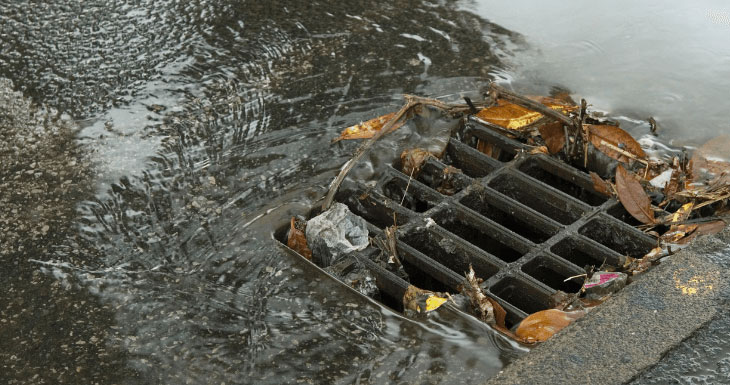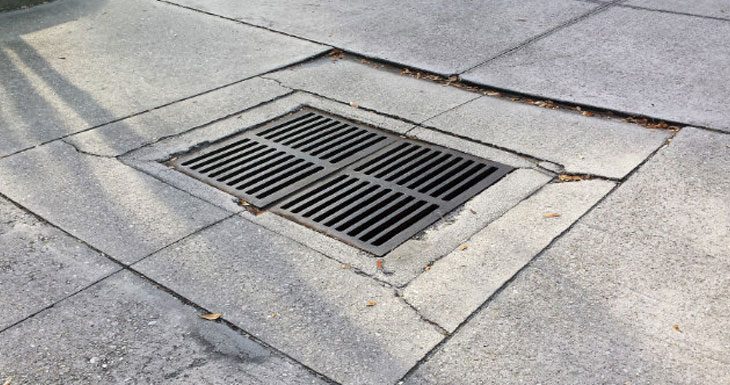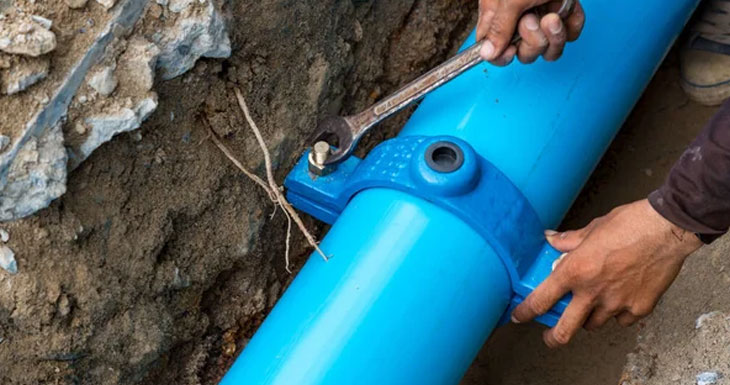Is your drain giving you trouble? It can be a real headache when water starts backing up and refuses to go down. But rest assured—we have your back. The top 5 practical suggestions to clear a clogged drain and restore your plumbing are provided in this post. Whether it’s a clogged kitchen sink or a blocked shower drain, these tips will help you tackle the problem like a pro.
Common Causes of Blocked Drains
Blocked drains can be caused by various factors. One common culprit is the accumulation of hair, soap residue, and other debris in bathroom drains. In the kitchen, grease, food particles, and cooking oil are often the main culprits. Another cause of blockage could be tree roots invading the drain pipes in your backyard. Identifying the cause is crucial in order to effectively unblock your drain and prevent future blockages.
To determine the cause of the blockage, you can start by observing the signs.
Signs of a Blocked Drain
A blocked drain usually exhibits several signs that are hard to miss. The most obvious one is water backing up in sinks, showers, or toilets. You may also notice a foul odour emanating from the drain. Slow drainage is another telltale sign that your drain is blocked. It’s important to unclog your drain if you notice any of these signs.
DIY Methods to Unblock Your Drain
Before you reach for the phone to call a professional plumber, try these simple do-it-yourself methods to unblock your drain. One effective method is using a plunger. Fill the sink or tub with enough water to cover the drain, place the plunger over it, and start plunging vigorously. The pressure created by the plunger can dislodge the clog and free the drain.
Another method involves using a combination of baking soda and vinegar. Pour a cup of baking soda down the drain, followed by a cup of vinegar. Let the mixture sit for about 30 minutes to a couple of hours, then flush it with hot water. This will cause a chemical reaction that can break down the clog and clear the drain.
Unclogging Your Drain with Natural Remedies
There are a few options available to you if you wish to employ natural remedies. One of the popular methods is using a mixture of salt and baking soda. Mix equal parts of salt and baking soda and pour it down the drain. Follow it up with hot water to flush away the debris.
Another natural remedy is using boiling water. Boil a kettle of water and carefully pour it down the drain in stages and not as one downstream. This method can help dissolve grease and flush away any blockages.
Tools and Equipment for Unblocking Drains
For more stubborn clogs, you may need to use specialized tools and equipment. A drain snake, also known as a plumber’s snake, is a flexible cable with a corkscrew-like tip that can be inserted into the drain to break up and remove the clog. A drain auger, which resembles a drain snake but has a revolving blade that can cut through tougher clogs, is another equipment to take into consideration. If you don’t have these tools on hand, you can try using a wire coat hanger. To do so, you need to straighten the hanger and create a small hook at one end. Insert the hook into the drain and use gentle, twisting motions to dislodge the clog.
Preventive Measures to Avoid Future Drain Blockages
Prevention is better than cure when it comes to drain blockages. To avoid future issues, there are several preventive measures you can take. Start by installing drain screens or strainers in sinks, showers, and tubs to catch hair, food particles, and other debris before they enter the drain. Regularly cleaning these screens or strainers is essential to maintain their effectiveness.
Another preventive measure is to avoid pouring grease, oil, and coffee grounds down the drain. These substances can solidify and will cause blockage over time. Instead, dispose of them in a separate container or the trash.
When to Call a Professional Plumber
While many drain blockages can be resolved with DIY methods, there are instances when it’s best to call a professional plumber. If you have tried multiple methods without success, it’s a sign that the blockage may be more severe and require professional intervention. Additionally, if you suspect that the blockage is caused by tree roots or a more complex issue, it’s best to leave it to the experts.
Cost-Effective Ways to Deal with Drain Blockages
Dealing with drain blockages doesn’t always have to be expensive. There are cost-effective ways to tackle the problem. As mentioned earlier, utilizing DIY methods and natural remedies can save you money. Routine maintenance and preventative actions can also help to save future expensive repairs.
Advantages of Routine drain Maintenance
There are many advantages to routine drain maintenance. You may avoid clogs and maintain the health of your plumbing system by periodically clearing your drains of any debris. Regular maintenance also aids in the early detection of possible problems, enabling you to treat them before they grow into significant ones. In the end, spending a little time and effort on drain maintenance can prevent expensive repairs and inconveniences.
Conclusion
Don’t let a blocked drain ruin your day! With the top 5 handy tips we’ve shared in this article, you can tackle drain blockages like a pro. From simple DIY methods to natural remedies and specialized tools, there are plenty of options to choose from. Remember to take preventive measures to avoid future blockages and regularly maintain your drains. If all else fails, don’t hesitate to call a professional plumber. Say goodbye to expensive plumber bills and hello to a smoothly operating drain. Get ready to roll up your sleeves and unclog your drain with confidence!









